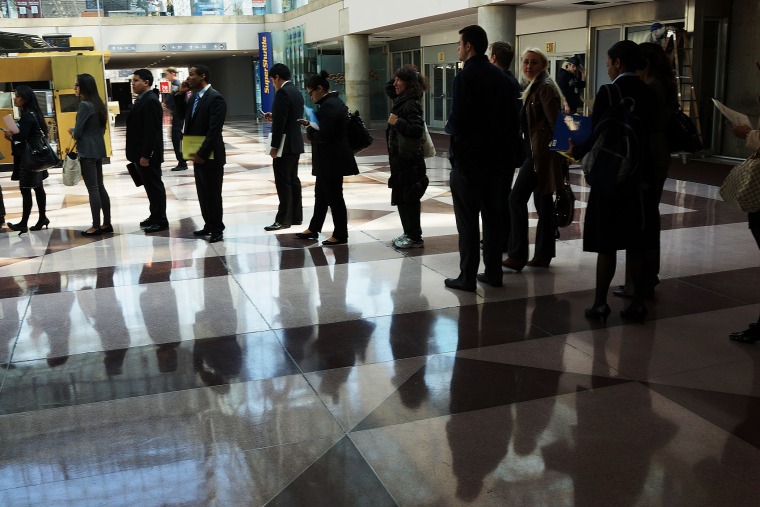With the Senate
easily approving a bipartisan compromise on extended unemployment benefits on Monday, the focus now shifts to House Republicans, who've
struggled at times to come up with a compelling rationale to cut off millions of struggling, jobless Americans.
To date, arguably the worst argument was floated two weeks ago by Rep. Tom Price (R-Ga.),
who said, "The extended unemployment benefits by the administration were to be in place until unemployment came down. Unemployment is down."
In other words, though it's been generations since Congress allowed jobless aid to lapse with an unemployment rate this high, Price is satisfied that the economy is now fine -- so unemployment benefits no longer matter.
"I don't think there is a great sense of pressure on our members," said Rep. Tom Cole (R-Okla.), a House deputy whip. "The prevailing view in our conference is that there aren't adequate pay-fors and it's time for this program to come to an end."
Putting aside the fact that the "pay-fors" are perfectly adequate and earned the support of several Senate Republicans, Cole's quote is a great example of why congressional policymaking is such a mess.
The unemployment rate is still too high. The Senate just passed a bipartisan bill to help millions of jobless Americans with a bill that the CBO believes will create hundreds of thousands of jobs. But because the unemployed lack political capital and House Republicans aren't especially concerned with the policy merits of legislation, GOP lawmakers don't feel any real "pressure" to act.
On a certain level, I can at least appreciate Cole's candor -- he's effectively admitting that he and his Republican colleagues just don't give a darn unless they feel "a great sense of pressure" -- but that's cold comfort to those facing personal economic crises.
That said, the bill may not be completely dead just yet.
Roll Call reported overnight that GOP leaders may be eyeing some kind of trade.
House Rules Chairman Pete Sessions of Texas and other senior Republicans are pushing proposals to tie the extension of emergency unemployment insurance to jobs measures and the extension of some tax breaks in an attempt to bring the plan to the House floor. Majority Whip Kevin McCarthy of California said Tuesday there was no plan to deal this week with the five-month unemployment extension (HR 3979) that passed the Senate on Monday and that any potential action on a House GOP alternative likely would come after the two-week April recess. "I don't think the Senate bill is one that can pass the House," McCarthy said. The comments from senior Republicans were the strongest indication from GOP leadership, however, that the House may take up some form of an unemployment extension.
This ties into what we
discussed yesterday: Republicans might be willing to at least consider the bipartisan Senate bill on jobless aid, but only if they add some conservative goodies and tell Senate Dems to take it or leave it.
Or put another way, we're once again looking at a dynamic in which the House GOP has some demands they expect to be met before they allow governing to proceed.
At this point, it's not entirely clear what's on the Republicans' wish list or how offensive Democrats might perceive their demands.
